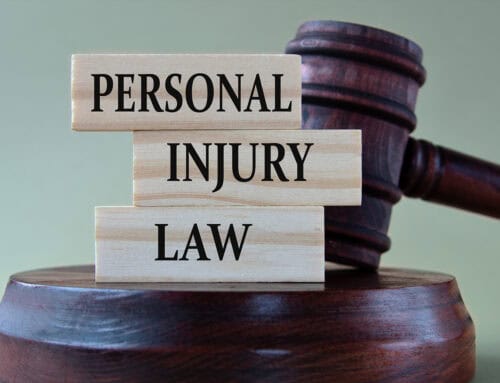What Damages Can You Receive in a Personal Injury Claim?
In personal injury claims, the purpose of seeking damages is to compensate the injured party for the harm they’ve suffered due to another’s negligence or intentional misconduct. California law provides a robust framework for recovering damages in personal injury cases, offering various types of compensation to cover both financial and non-financial losses. Understanding the types of damages available and how they apply to your case can be critical to ensuring you receive the compensation you deserve.
Types of Damages in a Personal Injury Claim
When pursuing a personal injury claim in California, the damages you can seek generally fall into two broad categories: compensatory damages and, in rare cases, punitive damages.
Compensatory damages are designed to make the injured party “whole” again by covering both financial and emotional losses. These can be further broken down into:
- Economic damages: These cover quantifiable financial losses, such as medical expenses and lost wages.
- Non-economic damages: These compensate for intangible losses, such as pain and suffering or emotional distress.
On the other hand, punitive damages are awarded in cases of particularly reckless or malicious behavior, with the intent to punish the wrongdoer and prevent future misconduct.
1. Economic Damages
Economic damages, also referred to as “special damages,” are designed to cover the tangible financial losses directly related to the injury. These damages are usually the easiest to calculate because they are tied to specific costs and monetary values. In California, economic damages include:
Medical Expenses
Medical expenses often constitute a significant portion of economic damages. These can cover a range of costs, such as emergency room visits, surgeries, hospital stays, medication, physical therapy, and even future medical care if the injury results in long-term or permanent disabilities. California allows injured parties to recover both past and future medical expenses, which must be reasonably proven through medical documentation and expert testimony.
Lost Wages and Loss of Earning Capacity
If your injury forces you to miss work, you can claim compensation for lost wages. This includes the income you’ve already lost as well as any future earnings you’re unable to earn due to the injury. In cases where the injury causes permanent disability or diminishes your ability to work, you can also seek damages for loss of earning capacity. In California, expert testimony is often used to estimate future lost income, especially in cases involving career-ending injuries or permanent impairments.
Property Damage
In cases where property was damaged during the incident—such as a vehicle in a car accident—California law allows you to seek compensation for the cost of repairing or replacing the damaged property. This often involves estimating the value of the property at the time of the loss and proving the cost of repairs or replacement.
2. Non-Economic Damages
Non-economic damages, also known as “general damages,” are more subjective and compensate for the non-monetary impact of the injury. These types of damages are often harder to calculate, as they cover intangible losses. California law allows plaintiffs to recover non-economic damages for:
Pain and Suffering
One of the most common forms of non-economic damages, pain and suffering compensates the injured party for the physical pain and emotional distress caused by the injury. This includes both the immediate pain experienced at the time of the injury and any ongoing suffering due to chronic pain or long-term impairments. In California, there is no specific formula for calculating pain and suffering; it is typically up to a jury or judge to determine the appropriate amount based on the circumstances of the case.
Emotional Distress
Injuries don’t just affect your physical health; they can also take a toll on your emotional and psychological well-being. Emotional distress damages can be awarded to compensate for anxiety, depression, PTSD, and other mental health conditions caused by the injury. Expert testimony from mental health professionals may be required to substantiate these claims.
Loss of Consortium
Loss of consortium refers to the deprivation of companionship, affection, and emotional support experienced by the spouse or domestic partner of the injured party. In California, a spouse can file a separate claim for loss of consortium, seeking compensation for the negative impact the injury has had on the marital or domestic relationship. These damages are meant to acknowledge the emotional and relational toll that a serious injury can have on families.
3. Punitive Damages
While less common, punitive damages may be awarded in certain California personal injury cases where the defendant’s behavior was particularly reckless, malicious, or egregious. The goal of punitive damages is not to compensate the injured party but to punish the wrongdoer and send a message that such conduct will not be tolerated.
California has strict requirements for awarding punitive damages. The injured party must prove by “clear and convincing evidence” that the defendant acted with oppression, fraud, or malice. For example, punitive damages may be appropriate in a case where a drunk driver caused a severe accident, or in cases involving intentional acts of violence.
There is no cap on the amount of punitive damages that can be awarded in California, but courts often base the award on the severity of the defendant’s actions and their financial standing to ensure the punishment is appropriate and not excessive.
4. Special Considerations in California
California has some unique rules and regulations that can affect the types of damages you may recover in a personal injury claim:
Comparative Negligence
California follows a pure comparative negligence rule, which means that even if you are partially at fault for the accident or injury, you can still recover damages. However, your compensation will be reduced by your percentage of fault. For example, if you are found to be 25% at fault for a car accident, your total damages will be reduced by 25%.
Damage Caps
While there are no general caps on non-economic damages in personal injury cases, there is a cap on non-economic damages in medical malpractice cases. Under California law, non-economic damages in medical malpractice cases are capped at $250,000. This limit does not apply to economic damages or punitive damages, which can still be pursued without restriction.
Taking the Next Steps Toward Compensation
Understanding the types of damages available in a personal injury claim can help you make informed decisions about your case and ensure you pursue all forms of compensation to which you are entitled. Whether you’re dealing with medical bills, lost wages, or the emotional toll of an injury, California’s personal injury laws provide a path for recovering the full extent of your losses.
If you’ve been injured due to someone else’s negligence, the Law Offices of Brent D. George can help you understand your legal rights and seek the compensation you deserve. Contact us today for a free consultation to discuss your case and begin your journey toward recovery.
Disclaimer: This article is intended for informational purposes only and does not constitute legal advice. For personalized assistance, please contact our office at (805)494-8400.






